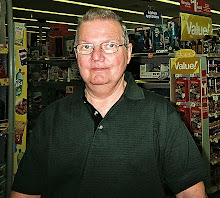We have identified five widely supported schools, factions or doctrinaires who attempt to inculcate judicial rules for deciding disputes involving the political relations between (1) individuals acting the capacities of voters, (2) individuals acting in concert as political party organizations and candidates, (3) individuals acting as elites with some means of influence beyond that of a voter, e.g. campaign financiers, media managers, (4) individuals acting as non-governmental organization spokespersons (NGO lobbyists), (5) individuals acting as the ballot casting electorate, and (6) individuals acting as the government at all levels.
With at least five dimensions for explanation and at least six categories of actors it would appear that understanding might be an undertaking of major complexity. However, there are obvious common factors which offer some possibilities for simplification. Everything has to do with individuals. All the political functions are performed by individuals claiming some authority to act politically in one or more specialized roles.
(0) At the minimal level is the unspecialized potential voter. This person has some claim to a right to vote which others recognize as legitimate. The unspecialized potential voter may or may not exercise the right which they reserve the right to claim at any election. This pool of the unspecialized potential voters is a reservoir of latent influence or power. They are non-rational actors. Not much can be said about the political influence of this group in the calculations of all others. We omit them from our formal list of political actors.
(1) The next level of specialized individuals are those who fully intend to vote and engage in some level of information searching activity to reach a voting decision. They may or may not vote, but if they do or do not, they can be characterized as rational actors regardless of whether an observer agrees with that person's reasoning process. This group has a bullseye on their foreheads. They are the principal target of all other specialized individuals.
(2) The next level of specialized individuals are those who are called activists. Typically they are habitual voters. These individuals often integrate information into a form which they can articulate in an attempt to influence others at this same level, a higher level or a previous 'lower' level. If they have a potential reach of influence which is wide enough, we may consider them as a member of an elite - they have influence beyond there own vote. This 'elite' may range from a person who can reach the minds of their extended family, co-workers, others in some social organization or they may be professional media pundits with a national following. Often candidates emerge or are recruited from this group.
(3) The next specialized level of individuals are amateur, semi-professionals or professionals who work primarily though a political party or quasi-party organization. They are vendors of skills required by candidates seeking election. They may also be campaign financiers or managers of media organizations. These individuals often function as brokers for access to commercial conduits for political 'speech'. They are recognizably an elite. Because of their limited numbers the votes of this group have a marginal effect on elections.
(4) A closely related specialized level to the previous one are individuals acting as spokesperson for 'non-partisan' non-governmental organizations. These individuals support and oppose 'policies' rather than candidates, e.g., churches, citizen lobbies, etc. These political actors are also an 'elite'. Their power is based on their apparent persuasive influence, not on their voting numbers.
(5) Oddly as it may seem, the next higher specialized set of individuals are those persons who actually voted in an election. They are not persons who may or may not vote. They are persons who actually did vote. They are the electorate. All the lower levels must measure their success or failure by the decisions of this group. The relationship between this group and all the others is the lynch pin of any analysis of a constitutional democratic republic.
(6a) The last level of specialized individuals is obvious. Individuals in government all act in a political capacity. They are their positions either because they were elected or admitted to government by those who were elected. This category includes professional and career government employees. They owe their status and livelihood to elected officials. Candidates for the most important elective offices frequently are selected from this caste.
(6b) A special subcategory in this class are judicial officers who are exempt from most other limitations on government employment. One might say this group is the cream of the elites. They are powerful to the extend that all lower levels of political specialists appeal to them to resolve policy disputes and their decisions are accepted. As individuals their power is reputational only. They rely on the political power of all the subordinate elements to execute their will. To defy a Supreme Court decision is equivalent to declaring oneself in insurrection against the entire state apparatus and possibly accused of heresy against humanity.
This briefly describes the functional categories of individuals in the American political system. Each of the five (or other) explanatory or justifying analyses of American politics must deal with at least these six major categories of individuals. I will focus much of my discussion on category 6b.
I hope to continue in the not to distant future...
Candidates should appear on the ballot if:
Saturday, June 2, 2007
Subscribe to:
Post Comments (Atom)



No comments:
Post a Comment